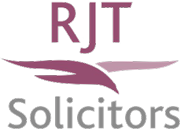CAN I CHANGE MY CHILD’S SURNAME?
A parent is able to change a child’s surname by a change of name deed providing all those with Parental Responsibility consent to the name change. A change of name deed is a legal document which commits a person to the action set out in the document. By applying for a change of name on behalf of their child a parent is agreeing to:
- Abandon their former name;
- Use their new name at all times in place of their previous name;
- Have people address them by their new name only
Reasons why a parent may wish to consider a change of name:
- A parent believes that he or she was prevented from exercising parental responsibility by being deprived of the right to choose the child’s name
- It is in the best interests of a child to change their name. For example, the child has been known by the given name for a significant period of time and not changing the name formally would cause the child harm
- A parent wishes all the children to be known by the same name
- Safety and protection concerns
- A parent is distressed by calling the child by the child’s registered name, for example, a child named after a violent parent. Such distress may impact on the parent’s ability to care for their child
What can you do if the other parent with parental responsibility refuses to consent to the change of name?
If a parent with parental responsibility will not consent to their child’s name being changed you will need to apply to the court for permission by making an application for a specific issue order. In considering such an application, the court will have to be satisfied that such a change is in the child’s best interests. It is something that the court take very seriously as a child’s surname is considered an integral part of the child’s identity. Before making an application to the court you are required to attempt mediation.
If there is a child arrangements order in force there will usually be a warning attached to it which states that nobody may cause the child to be known by a new surname without the consent of everybody with parental responsibility or the court’s permission.
What happens if one parent has parental responsibility for the child but has no contact and is an absent parent?
It may be possible to change the child’s surname without the other parent’s consent if the other parent’s whereabouts are unknown. The parent must, however, have taken reasonable steps to contact the other parent before making an application for a name change.
What can I do if I do not have parental responsibility for my child?
Case law suggests that when just the mother has parental responsibility for their child, good practice suggests that other interested parties, such as the father who does not have parental responsibility, should be contacted; if he disagrees with the name change, the matter should be brought before the court.
If a father without parental responsibility later discovers that his child’s surname has been changed he can make an application to court to have the change of name reversed. It would also be sensible in that eventuality for the father to apply for parental responsibility at the same time. In considering whether to reverse the change of name, the court will consider, amongst other things, the length of time the child has been known by the new surname, the reasoning behind the name change in the first place and whether the change is in the child’s best interests.
If the child is under a care order, the Local Authority will have parental responsibility for the child and they will need to consent to any request to change the child’s surname.
Will my child’s birth certificate be changed following the change of name?
There is no provision in law to change a child’s surname in a birth entry. Any change of name document or court orders changing the child’s surname should be used in conjunction with the child’s birth certificate as the original birth certificate will not be changed.
If you wish to discuss changing your child’s surname do not hesitate to contact RJT Solicitors on 01942 409154.








